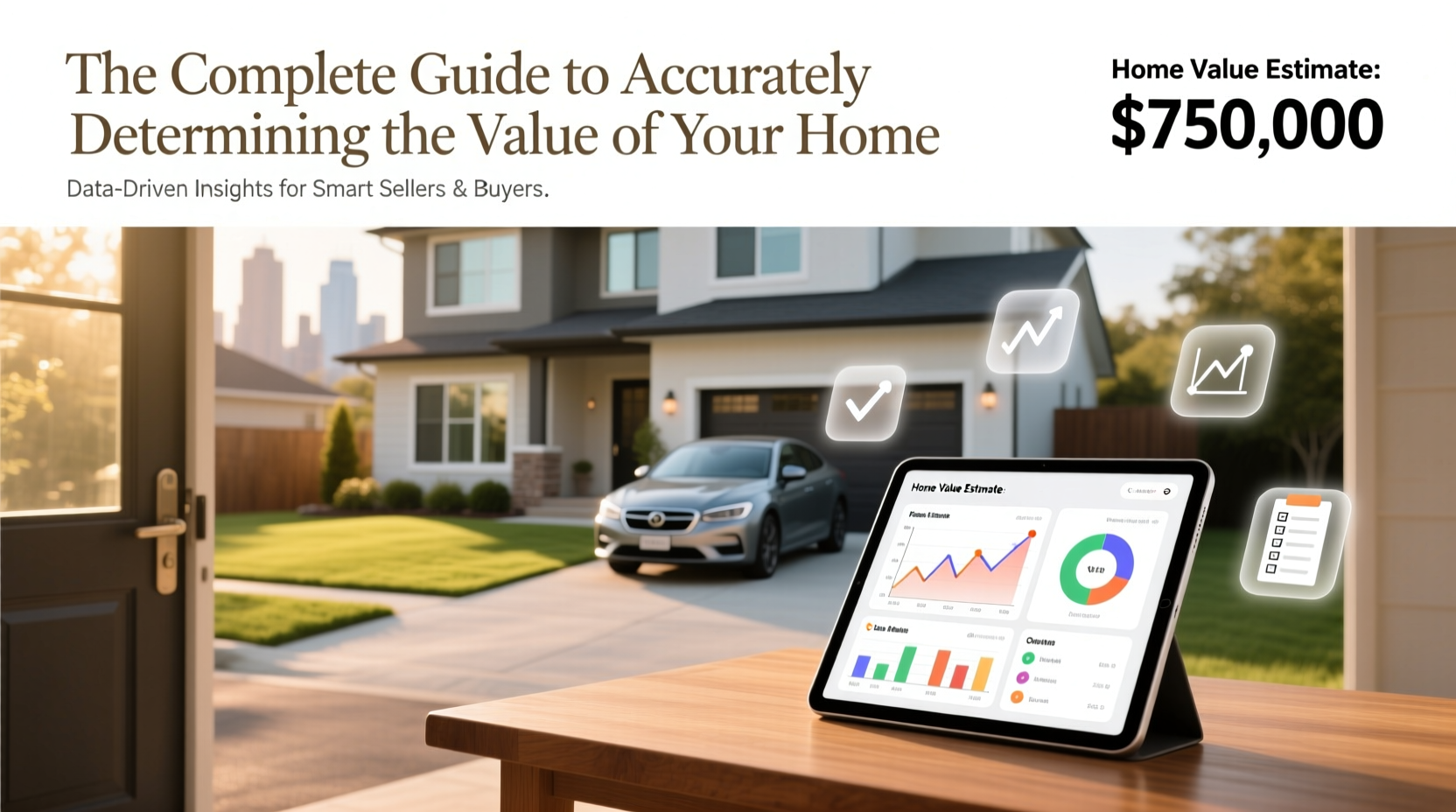Knowing the true value of your home is essential whether you're considering selling, refinancing, or simply planning for your financial future. Market fluctuations, neighborhood trends, and property improvements all influence valuation. But with so many factors at play, how can you arrive at an accurate figure? This guide walks through reliable methods, practical tools, and insider strategies to help you assess your home’s worth with confidence.
Why Accurate Home Valuation Matters

An incorrect estimate can lead to missed opportunities. Overpricing deters buyers and prolongs time on the market; underpricing leaves money on the table. Lenders rely on appraisals when refinancing, and tax assessments may be challenged with solid valuation data. A precise understanding of your home's value supports smarter decisions in real estate, estate planning, and investment.
“Homeowners who understand their property’s real market value are better positioned to negotiate, refinance, or sell at optimal terms.” — Linda Park, Certified Residential Appraiser with 18 years of experience
Key Factors That Influence Your Home’s Value
Valuation isn’t just about square footage. Multiple dynamic elements shape what your home is worth:
- Location: Proximity to schools, public transit, parks, and low-crime areas significantly boosts value.
- Square Footage & Layout: Functional floor plans with ample living space command higher prices.
- Condition & Age: Updated kitchens, modern bathrooms, and well-maintained systems add equity.
- Recent Renovations: Energy-efficient windows, new roofs, or smart-home features increase appeal.
- Comparable Sales (Comps): What similar homes have sold for in the last 3–6 months sets the benchmark.
- Market Conditions: In a seller’s market, values rise due to high demand; in a buyer’s market, they may stagnate or fall.
Step-by-Step Guide to Determining Your Home’s Value
Follow this structured approach to get a clear, data-backed estimate:
- Gather Basic Property Details: Collect square footage, number of bedrooms/bathrooms, lot size, year built, and recent upgrades.
- Research Recent Comps: Use real estate platforms like Zillow, Redfin, or Realtor.com to find homes similar to yours that sold within the last 90 days.
- Adjust for Differences: If your kitchen is updated but comparable homes aren’t, add $10,000–$15,000 to their sale price as a premium.
- Check Tax Assessor Records: Visit your local county assessor’s website to review assessed value and property characteristics.
- Order a Comparative Market Analysis (CMA): Contact a licensed real estate agent—they’ll provide a free CMA based on current market data.
- Schedule a Professional Appraisal: For the most accurate valuation (especially for loans), hire a certified appraiser ($300–$500).
- Compare Online Estimates: Use automated valuation models (AVMs) from sites like CoreLogic or ATTOM, but treat them as starting points, not final answers.
Comparison of Valuation Methods
| Method | Accuracy | Cost | Best For |
|---|---|---|---|
| Online AVMs (Zillow, Redfin) | Moderate | Free | Quick estimates, initial research |
| Comparative Market Analysis (CMA) | High | Free (via agent) | Selling preparation, listing strategy |
| Professional Appraisal | Very High | $300–$500 | Refinancing, mortgage lending, legal purposes |
| Tax Assessed Value | Low to Moderate | Free | Understanding tax obligations, long-term trends |
A Real Example: How Sarah Determined Her Home’s Value
Sarah, a homeowner in Portland, Oregon, wanted to refinance her 3-bedroom bungalow. She started by checking Zillow, which estimated her home at $485,000. Skeptical, she contacted a local agent who performed a CMA. The agent found three recently sold homes within 0.3 miles, all similar in size but without Sarah’s updated kitchen and hardwood floors. Adjusting for these upgrades, the CMA valued her home at $515,000. To confirm, she hired an appraiser, whose report came in at $510,000—close enough to proceed confidently with her lender. By using multiple sources, Sarah avoided relying on a single algorithm and secured better loan terms.
Common Mistakes to Avoid
Even well-intentioned homeowners can misjudge value. Watch out for these pitfalls:
- Relying solely on online estimates: Algorithms often miss unique features or local nuances.
- Overvaluing personal renovations: Not all upgrades offer full return—luxury pools may not appeal to all buyers.
- Ignoring market timing: A hot market last spring doesn’t guarantee the same results today.
- Using outdated comps: Sales older than six months may not reflect current conditions.
- Emotional bias: “We love our home” doesn’t translate into higher market value.
Essential Checklist: How to Accurately Value Your Home
Use this checklist to ensure you’ve covered all bases:
- ✅ Measure total square footage (include finished basement if applicable)
- ✅ List all recent improvements (date, cost, type)
- ✅ Identify 3–5 comparable sales in your area (last 90 days)
- ✅ Adjust comp prices for differences (bedrooms, condition, lot size)
- ✅ Review your tax assessment and note any discrepancies
- ✅ Request a free CMA from a reputable local agent
- ✅ Consider hiring a certified appraiser for official needs
- ✅ Cross-reference 2–3 online valuation tools
Frequently Asked Questions
How often should I re-evaluate my home’s value?
At least once a year, especially if you’re considering selling or refinancing. In fast-moving markets, every 6 months may be wise.
Do home improvements always increase value?
Not equally. Kitchen and bathroom remodels typically offer the highest return (70–85%), while luxury additions like wine cellars may not recoup full costs. Focus on functional, broadly appealing upgrades.
Is a professional appraisal worth the cost?
Yes, if you need a legally recognized value—for refinancing, estate settlements, or disputes. For general awareness, a CMA is often sufficient and free.
Final Thoughts and Next Steps
Determining your home’s value isn’t about guessing or hoping for the best—it’s about gathering evidence, analyzing data, and applying context. Whether you use online tools, consult professionals, or combine both, the goal is accuracy grounded in reality. The more informed you are, the better equipped you’ll be to make strategic financial decisions.









 浙公网安备
33010002000092号
浙公网安备
33010002000092号 浙B2-20120091-4
浙B2-20120091-4
Comments
No comments yet. Why don't you start the discussion?